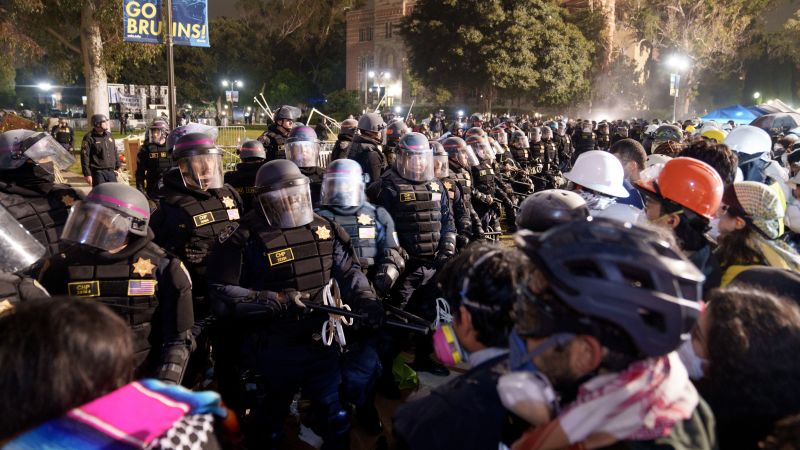As universities and colleges turn to police to clear their campuses of protests over Israel’s assault on Gaza that continue to ripple across the nation, the response by law enforcement is under heightened scrutiny after thousands were arrested since mid-April.
Footage captured from the physical - and in some cases violent - confrontations between police and protesters reveals a gamut of tactics used to disperse demonstrators from occupied school buildings and take down on-campus encampments.
Civil rights groups have criticized what they say is an excessive police response to the protests as officers, clad in riot gear, swarm campuses and in some cases have deployed rubber bullets, chemical irritants and pepper balls to quell them. Law enforcement agencies say they were challenged with ensuring the First Amendment rights of protesters while enforcing the law and the rules of the universities and keeping everyone safe.
The wide range of police tactics seen on campuses nationwide reveal the disparities between police agencies in their training and understanding of the generally accepted best practices in dealing with protests and crowd control issues, law enforcement experts told CNN.
Still, the experts said, police were largely measured in their approach and showed restraint in using force – a direct result of lessons learned during the widespread protests after the police killing of George Floyd nearly four years ago. Those protests were bigger, fiercer and more sustained than prior demonstrations.



The lesson that they can do whetever the hell they feel like and like maybe on or two of them across the entire country might face something which appears like consequences but is actually a light slap on the wrist.